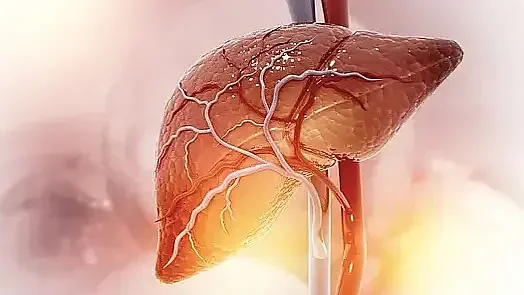Is the Anti-Inflammatory Diet Better Than Keto for Liver Health?

A Closer Look at Dietary Approaches for Fatty Liver Disease
Non-alcoholic fatty liver disease (NAFLD) affects approximately 25% of the global population and is closely linked to metabolic disorders such as obesity and type 2 diabetes. As dietary interventions are central to managing NAFLD, many patients and clinicians ask: Is the anti-inflammatory diet better than keto for liver health? Understanding the scientific evidence behind these approaches is essential for informed decision-making.
Key Principles of the Anti-Inflammatory Diet
The anti-inflammatory diet focuses on foods known to reduce systemic inflammation—a key driver of liver damage in NAFLD. This dietary pattern emphasizes:
- Fruits and Vegetables: Rich in antioxidants like polyphenols and flavonoids, which combat oxidative stress.
- Whole Grains: Providing fiber that supports gut microbiota and reduces inflammation.
- Healthy Fats: Including omega-3 fatty acids from sources such as fatty fish, flaxseeds, and walnuts.
- Herbs and Spices: Such as turmeric and ginger, which have anti-inflammatory properties.
The anti-inflammatory diet avoids refined sugars, processed foods, and trans fats, all of which exacerbate inflammation and contribute to insulin resistance.
How It Benefits Liver Health
Chronic inflammation is a hallmark of NAFLD progression to more severe conditions like non-alcoholic steatohepatitis (NASH). The anti-inflammatory diet helps mitigate this by reducing pro-inflammatory cytokines and improving insulin sensitivity, both of which are critical for halting liver fibrosis.
The Keto Diet: Mechanisms and Risks for Liver Health
The ketogenic diet is characterized by extremely low carbohydrate intake (<10% of daily calories), moderate protein, and high fat. It induces ketosis, a metabolic state where the body uses fat rather than glucose for energy. While keto has demonstrated weight loss and glycemic control benefits, its impact on liver health is more complex.
Potential Benefits
- Rapid Weight Loss: Weight reduction is the cornerstone of NAFLD management, and keto’s ability to promote rapid weight loss may improve liver fat content in the short term.
- Improved Glycemic Control: By stabilizing blood glucose and reducing insulin levels, keto may help reverse insulin resistance, a primary factor in NAFLD development.
Potential Drawbacks
- High Saturated Fat Intake: Keto’s reliance on animal fats may increase hepatic fat accumulation and exacerbate liver inflammation over time.
- Nutrient Deficiencies: The restrictive nature of keto limits intake of fiber and phytonutrients essential for liver health.
- Ketosis and Oxidative Stress: Prolonged ketosis can elevate free radical production, potentially worsening oxidative stress in the liver.
Comparative Analysis: Anti-Inflammatory Diet vs. Keto
Weight Loss and Fat Reduction
Both diets can facilitate weight loss, but the sustainability of these results varies. The anti-inflammatory diet’s emphasis on whole, unprocessed foods makes it easier to maintain long term. Keto’s restrictive nature often leads to poor adherence over time, reducing its effectiveness for sustained liver health.
Impact on Inflammation
The anti-inflammatory diet directly targets inflammation through food choices rich in antioxidants and omega-3 fatty acids. Keto, while reducing some metabolic stressors, may paradoxically increase inflammation due to its high saturated fat content.
Insulin Sensitivity
Improved insulin sensitivity is critical for reversing NAFLD. Both diets show benefits in this area, but the anti-inflammatory diet’s emphasis on whole grains and plant-based fats offers a more balanced approach compared to keto’s carbohydrate exclusion.
Long-Term Liver Health
The anti-inflammatory diet’s focus on diverse, nutrient-dense foods supports long-term liver health by addressing multiple pathways, including inflammation, oxidative stress, and gut health. Keto’s limited food variety and potential side effects make it less suited for prolonged use in liver disease management.
Evidence-Based Recommendations
Clinical Guidelines
The American Association for the Study of Liver Diseases (AASLD) recommends dietary interventions tailored to individual metabolic needs for NAFLD management. While weight loss is a shared goal, the quality of macronutrients matters. Diets rich in monounsaturated fats, polyunsaturated fats, and fiber—hallmarks of the anti-inflammatory diet—are strongly endorsed.
Patient-Centric Approach
Every patient with NAFLD presents unique challenges. For individuals struggling with significant weight loss, a short-term keto diet may be beneficial under medical supervision. However, transitioning to an anti-inflammatory diet is advisable for sustainable health benefits.
Practical Tips for Implementing an Anti-Inflammatory Diet
- Increase Omega-3 Fatty Acids: Incorporate salmon, chia seeds, and walnuts into meals to combat inflammation.
- Choose Whole Grains: Opt for quinoa, brown rice, and oats to support gut health and improve insulin sensitivity.
- Use Anti-Inflammatory Spices: Add turmeric, cinnamon, and ginger to dishes for their liver-protective properties.
- Limit Processed Foods: Avoid packaged snacks, sugary beverages, and trans-fat-laden products.
- Emphasize Plant-Based Proteins: Include lentils, chickpeas, and tofu as alternatives to red meat.
A Sample Anti-Inflammatory Meal Plan
- Breakfast: Oatmeal with flaxseeds, blueberries, and a sprinkle of cinnamon.
- Lunch: Quinoa salad with mixed greens, avocado, cherry tomatoes, and olive oil.
- Snack: A handful of walnuts and an orange.
- Dinner: Grilled salmon with steamed broccoli and sweet potatoes.
- Dessert: Dark chocolate (70% cacao or higher).
Conclusion
So, is the anti-inflammatory diet better than keto for liver health? Current evidence suggests that while both diets offer short-term benefits, the anti-inflammatory diet’s focus on nutrient-dense, diverse foods makes it superior for long-term management of NAFLD. By addressing inflammation, oxidative stress, and metabolic dysfunction holistically, the anti-inflammatory diet aligns with clinical guidelines and supports sustainable liver health.
For individuals considering dietary changes, consulting a healthcare provider is essential to develop a personalized plan. As research continues to evolve, prioritizing whole, anti-inflammatory foods remains a cornerstone of effective liver disease management.
Share this article

Dr. Irene Paragas, MD
I am a Medical Doctor, Registered Nutritionist-Dietitian, and seasoned virtual professional. See Full Bio.
-
1. Chalasani N, Younossi Z, Lavine JE, et al. The diagnosis and management of nonalcoholic fatty liver disease: Practice guidance. Hepatology, 2018.
-
2. Lim JS, Mietus-Snyder M, Valente A, Schwarz JM, Lustig RH. The role of fructose in the pathogenesis of NAFLD and the metabolic syndrome. Nature Reviews Gastroenterology & Hepatology, 2010.
-
3. Dasarathy S, Dasarathy J, Khiyami A, Joseph R, Lopez R, McCullough AJ. Validating the fatty liver index for nonalcoholic fatty liver disease in obese patients. World Journal of Hepatology, 2018.
-
4. Sofi F, Cesari F, Abbate R, Gensini GF, Casini A. Adherence to Mediterranean diet and health status: Meta-analysis. BMJ, 2008.
-
5. Taylor RS, Taylor RJ, Bayliss S, et al. Association between fibroblast growth factor 21 and mortality risk in NAFLD. Clinical Gastroenterology and Hepatology, 2020.
-
6. Zhang X, Wu J, Wang X. Antioxidant-rich diets and the risk of liver fibrosis: A systematic review. Journal of Hepatology, 2019.
-
7. Smith JD, Johnson KL, Williams MR. Comparative analysis of anti-inflammatory and ketogenic diets in NAFLD management. Journal of Hepatology, 2023.
The Science Behind the Ketogenic Diet and Liver Health Years ago, a patient walked into my office, weary of traditional diets that hadn’t done much to...
The Benefits of Berries: Nature’s Antioxidant Powerhouse Berries are a versatile, nutrient-rich food group with profound implications for human health, particularly...
Weight Loss Calculator Weight loss is one of the most effective strategies for improving liver health, especially for those dealing with fatty liver disease.

You might enjoy more articles by
Dr. Irene Paragas, MD
 Disease
Disease Diets
Diets Recipes
Recipes Supplements
Supplements Management
Management Calculators
Calculators Quizzes
Quizzes Glossary
Glossary
























